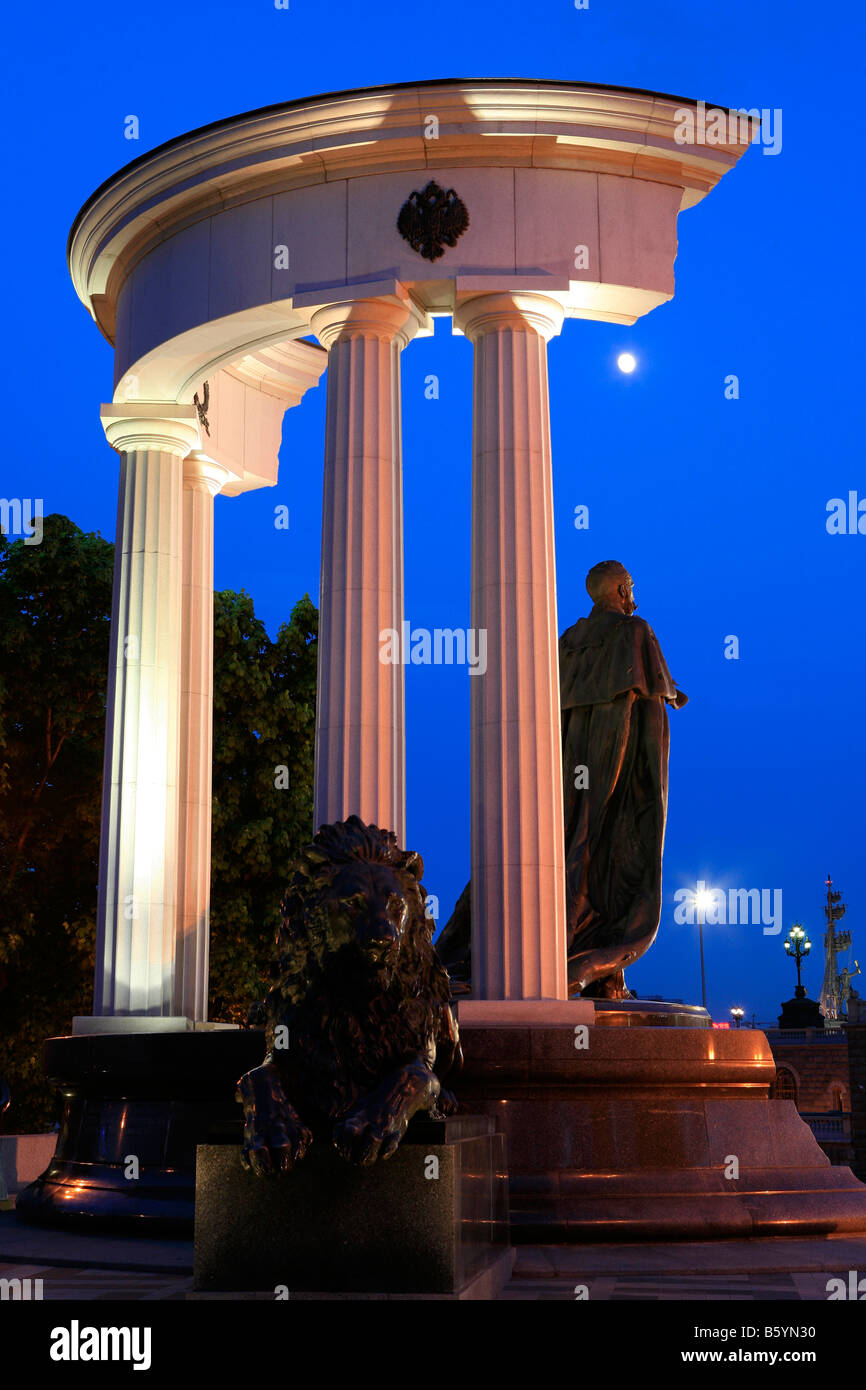Statue of Czar Alexander II of Russia (1855-1881) at the Cathedral of Christ the Saviour in Moscow, Russia

Image details
Contributor:
DE ROCKER / Alamy Stock PhotoImage ID:
B5YN30File size:
52.4 MB (1.7 MB Compressed download)Releases:
Model - no | Property - noDo I need a release?Dimensions:
3493 x 5242 px | 29.6 x 44.4 cm | 11.6 x 17.5 inches | 300dpiDate taken:
16 May 2008Location:
Cathedral of Christ the Saviour, Volhonka Street 15-17, Moscow, Russian Federation, Eastern EuropeMore information:
Alexander II (29 April 1818 in Moscow - 13 March 1881 in Saint Petersburg) was the Emperor of Russia from 2 March 1855 until his assassination in 1881. He was also the King of Poland and the Grand Duke of Finland. Alexander was the most successful Russian reformer since Peter the Great. His most important achievement was the emancipation of serfs in 1861, for which he became known as Alexander the Liberator. The czar was responsible for numerous other reforms including reorganizing the judicial system, setting up elected local judges, abolishing capital punishment, promoting local self-government through the zemstvo system, imposing universal military service, ending some of the privileges of the nobility, and promoting universities. Despite these reforms, during his reign, his brutal secret police, known as the Third Section, sent thousands of dissidents into exile in Siberia. In foreign policy, Alexander sold Alaska to the United States in 1867, fearing the remote colony would fall into British hands if there was another war. He sought peace, moved away from bellicose France when Napoleon III fell in 1871, and in 1872 joined with Germany and Austria in the League of the Three Emperors that stabilized the European situation. Despite his otherwise pacifistic foreign policy, he fought a brief war with Turkey in 1877–78, pursued further expansion into Siberia and the Caucasus, and conquered Turkestan. Although disappointed by the results of the Congress of Berlin in 1878, Alexander abided by that agreement. Among his greatest domestic challenges was an uprising in Poland in 1863, to which he responded by stripping that land of its separate Constitution and incorporating it directly into Russia. Alexander was proposing additional parliamentary reforms to counter the rise of nascent revolutionary and anarchistic movements when he was assassinated in 1881.